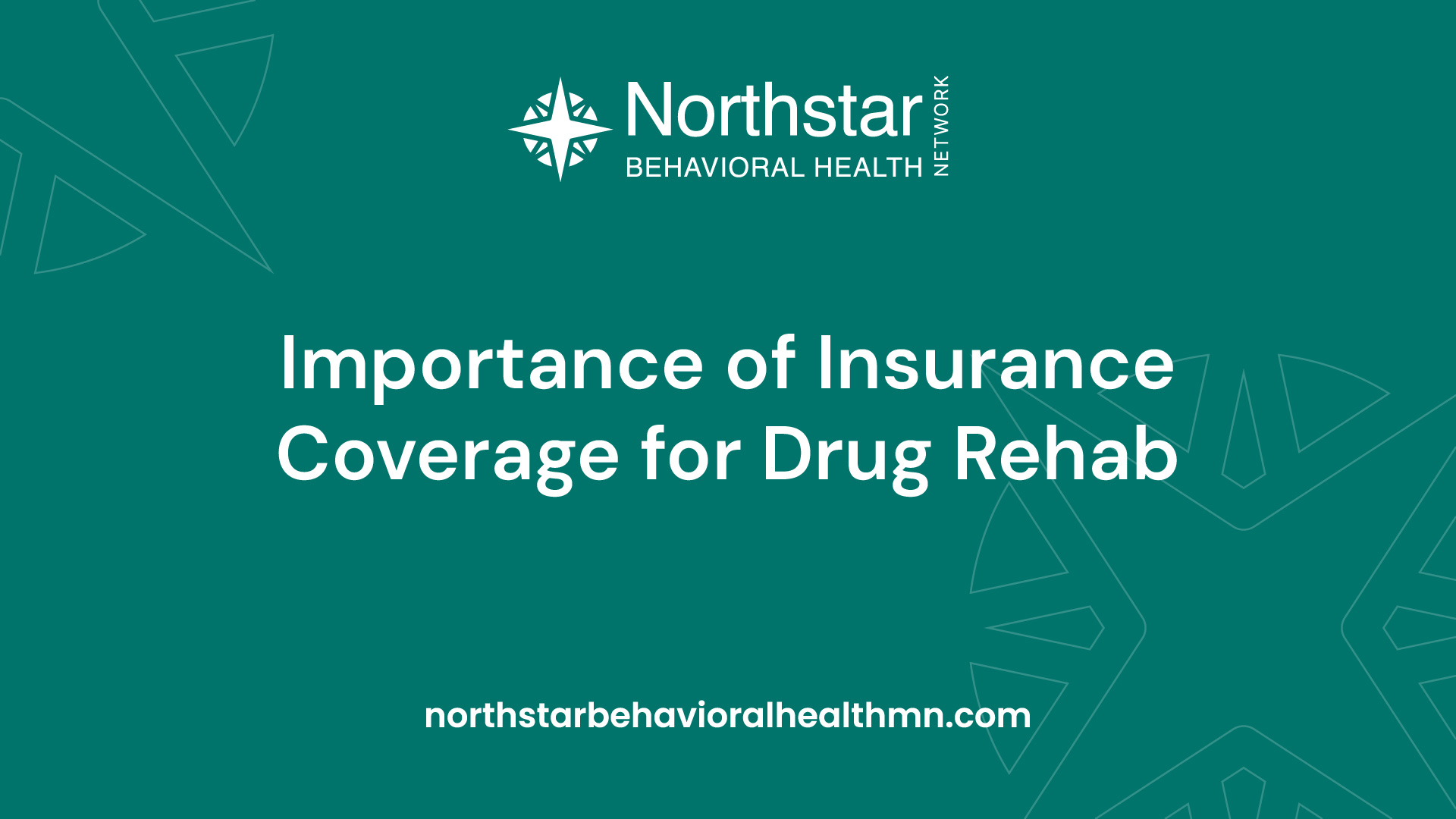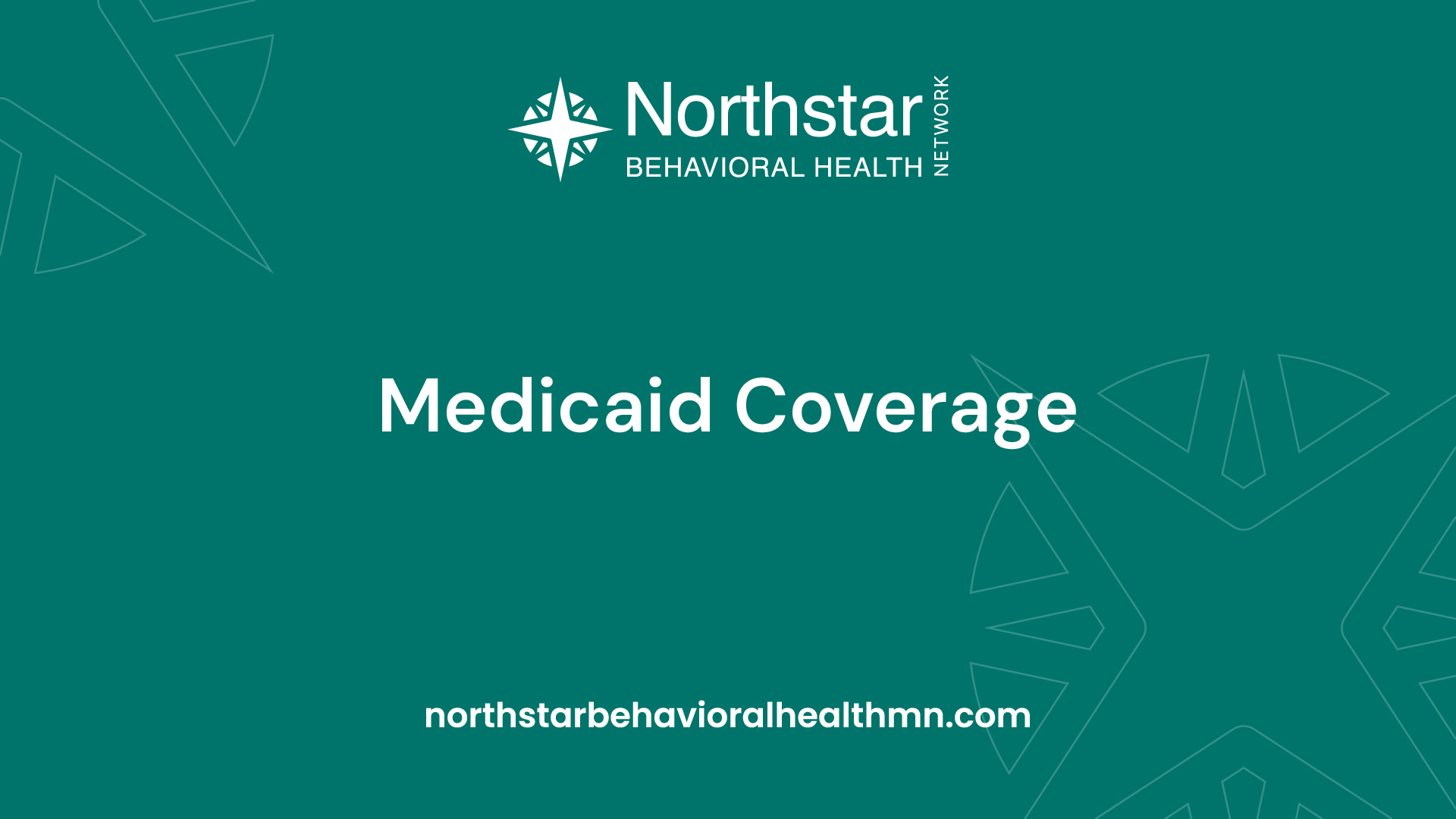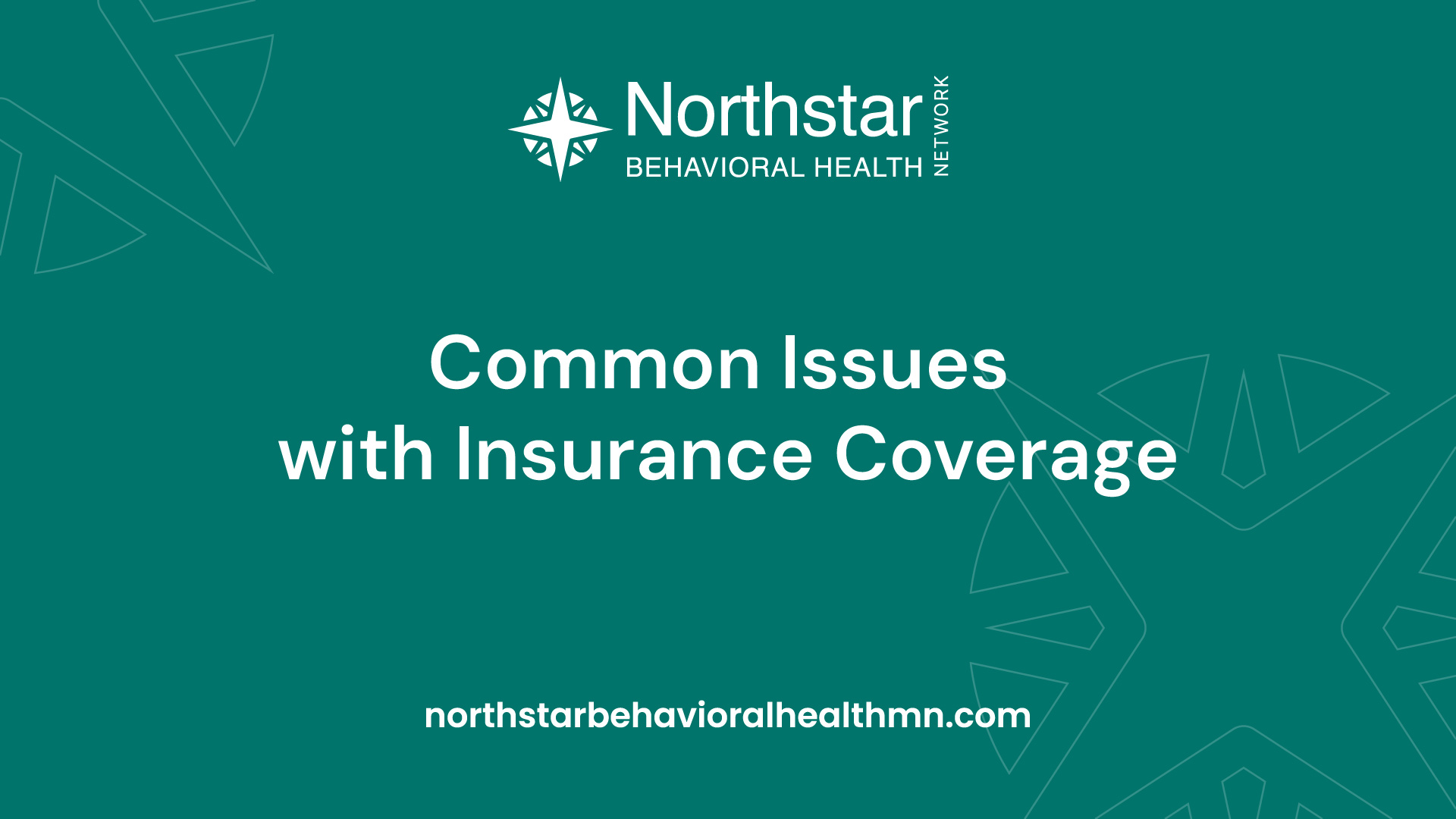August 27, 2024
Navigating Insurance For Drug Rehab Costs
Discover support options to ease your expenses.


Understanding Insurance Coverage for Drug Rehab
When seeking treatment for drug addiction, understanding insurance coverage for drug rehab is essential. Insurance coverage can play a crucial role in alleviating the financial burden of rehab expenses and ensuring that individuals have access to the care they need. However, there are also challenges that individuals may face when trying to obtain insurance coverage for drug rehab.
Importance of Insurance Coverage for Drug Rehab

Insurance coverage for drug rehab is of utmost importance for individuals seeking recovery from addiction. Substance abuse treatment can be costly, and without insurance coverage, many individuals may struggle to afford the necessary care. Having insurance coverage can make a significant difference in accessing quality treatment options, including detoxification, therapy, medication, and aftercare services.
Insurance coverage for drug rehab can provide financial assistance, allowing individuals to focus on their recovery without the added stress of overwhelming expenses. It may also provide access to a wider range of treatment facilities and programs, enabling individuals to find the most appropriate and effective treatment for their specific needs.
Challenges in Obtaining Insurance Coverage
While insurance coverage for drug rehab is crucial, obtaining it can be challenging. There are several barriers that individuals may encounter when trying to secure insurance coverage for drug rehab:
- Limited Coverage: Some insurance plans may offer limited coverage for rehab services, which may restrict the type or duration of treatment covered. It is important to carefully review insurance policies to understand the extent of coverage available.
- High Deductibles and Co-Pays: Many insurance plans require individuals to meet high deductibles or pay significant co-pays before coverage for drug rehab services kicks in. These out-of-pocket expenses can be a barrier to accessing treatment for some individuals.
- Lack of Transparency: Understanding the details of insurance coverage for drug rehab can be challenging due to the lack of transparency in coverage details. Some insurance plans may have complex terms and conditions, making it difficult to determine what is covered and what is not.
Navigating the complexities of insurance coverage for drug rehab can be overwhelming. It is important for individuals and their loved ones to advocate for themselves and make informed decisions regarding insurance coverage. Seeking support from advocacy groups and understanding one's rights can be helpful in overcoming challenges and accessing the necessary coverage for drug rehab.
In the following sections, we will explore different types of insurance plans and common issues individuals may encounter with insurance coverage for drug rehab. It is important to explore alternatives, such as scholarships, grants, sliding scale payment options, and crowdfunding, if insurance coverage is not sufficient. For more information on seeking alternative funding options, refer to our article on seeking alternative funding options.
Types of Insurance Plans

When it comes to seeking insurance coverage for drug rehab, understanding the different types of insurance plans available is essential. Here, we will explore three common types of insurance plans: private health insurance, Medicaid coverage, and Medicare coverage.
Private Health Insurance
Private health insurance plans are typically obtained through an employer or purchased individually. These plans offer a range of coverage options for drug rehab treatment. The extent of coverage can vary depending on the specific insurance provider and plan.
Private health insurance plans often provide coverage for inpatient and outpatient drug rehab services, including detoxification, counseling, medication-assisted treatment, and aftercare. However, it's important to review the details of your specific plan to understand the extent of coverage, including any limitations or requirements.
Some private health insurance plans may require preauthorization or a referral from a primary care physician before initiating drug rehab treatment. Additionally, copayments, deductibles, and coinsurance may apply. It's crucial to verify the details of your coverage and understand any financial responsibilities before starting treatment.
Medicaid Coverage

Medicaid is a state and federal program designed to provide healthcare coverage for individuals and families with limited income and resources. Medicaid coverage for drug rehab can vary by state, as each state has its own guidelines and requirements.
In general, Medicaid coverage for drug rehab may include inpatient and outpatient services, detoxification, counseling, medication-assisted treatment, and other necessary treatments. The specific services covered may depend on the individual's needs and the state's Medicaid program.
To determine if you qualify for Medicaid coverage for drug rehab, you will need to meet the income and eligibility requirements set by your state. It's advisable to contact your state's Medicaid office or visit their website for more information on the specific coverage available in your area.
Medicare Coverage
Medicare is a federal health insurance program primarily for individuals aged 65 and older, as well as certain individuals with disabilities. Medicare coverage for drug rehab is available to eligible individuals through different parts of the program.
Medicare Part A covers inpatient drug rehab services, including detoxification and residential treatment, in a Medicare-certified facility. Part A may require a deductible and coinsurance for each benefit period.
Medicare Part B covers outpatient drug rehab services, such as counseling and medication management. Part B may require a deductible and coinsurance or copayments.
To access Medicare coverage for drug rehab, you must meet certain eligibility criteria and be enrolled in the appropriate parts of Medicare. It's recommended to review your specific Medicare plan and consult with Medicare representatives to understand the coverage details and any associated costs.
Understanding the different types of insurance plans is crucial when seeking coverage for drug rehab. Private health insurance, Medicaid, and Medicare each offer their own set of benefits and requirements. It's important to review the details of your specific plan or program and consult with your insurance provider to determine the extent of coverage available to you.
Common Issues with Insurance Coverage

When it comes to seeking insurance coverage for drug rehab, individuals often encounter several common issues that can make the process challenging. These issues include limited coverage for rehab services, high deductibles and co-pays, and a lack of transparency in coverage details.
Limited Coverage for Rehab Services
One of the most common issues individuals face when seeking insurance coverage for drug rehab is the limited coverage for rehab services. Many insurance plans have specific limitations on the types of treatment programs or services they will cover. For example, some plans may only cover inpatient rehab, while others may exclude certain types of therapy or alternative treatments.
It's crucial to carefully review your insurance policy or contact your insurance provider to understand the specific coverage limitations for drug rehab services. This will help you determine which treatment options are eligible for coverage and plan accordingly.
High Deductibles and Co-Pays
Another challenge individuals often encounter is the high deductibles and co-pays associated with insurance coverage for drug rehab. Deductibles are the amount of money you must pay out of pocket before your insurance coverage kicks in, while co-pays are the fixed amounts you are responsible for paying for each visit or service.
The high cost of deductibles and co-pays can be a significant barrier for individuals seeking drug rehab services. Before choosing a treatment program, it's essential to consider the financial implications and determine if you can afford the out-of-pocket expenses associated with your insurance plan.
Lack of Transparency in Coverage Details
A lack of transparency in coverage details is another common issue individuals face when navigating insurance coverage for drug rehab. Insurance policies can be complex and difficult to understand, making it challenging to determine what services are covered, what documentation is required, and how to navigate the claims process.
To address this issue, it's recommended to reach out to your insurance provider directly to obtain clear information about your coverage. Ask specific questions about the services covered, any pre-authorization requirements, and the claims process. It's also helpful to document all communication with your insurance provider to have a record of the information provided.
By being aware of these common issues with insurance coverage for drug rehab, individuals can better navigate the process and make informed decisions. It's important to stay proactive, advocate for yourself, and explore alternative funding options if necessary. For more information on alternative funding options, such as scholarships, grants, and crowdfunding, refer to our article on seeking alternative funding options.
Seeking Alternative Funding Options
When facing challenges with insurance coverage for drug rehab, it's important to explore alternative funding options to ensure access to the necessary treatment. Here are three potential avenues to consider:
Scholarships and Grants
Scholarships and grants can provide financial assistance for individuals seeking drug rehab treatment. Many organizations, both private and non-profit, offer scholarships and grants specifically for addiction treatment. These funds are often awarded based on financial need and may cover a portion or the full cost of rehab services.
To find scholarships and grants, individuals can explore resources such as local community organizations, non-profit foundations, and substance abuse treatment centers. These organizations may have their own scholarship programs or can provide information on external funding opportunities. It's important to thoroughly research and apply for scholarships and grants that align with specific eligibility criteria and requirements.
Sliding Scale Payment Options
Some drug rehab facilities offer sliding scale payment options based on an individual's income and ability to pay. Sliding scale payment systems adjust the cost of treatment based on an individual's financial circumstances, making rehab services more affordable and accessible.
When exploring sliding scale payment options, it's important to contact treatment centers directly and inquire about their financial assistance programs. They will typically assess an individual's income and financial documentation to determine the appropriate fee structure. Utilizing sliding scale payment options can help individuals receive the necessary treatment within their financial means.
Crowdfunding and Fundraising
Crowdfunding platforms and fundraising efforts can be effective ways to gather financial support for drug rehab expenses. Online platforms allow individuals to create fundraising campaigns and share their stories to seek donations from friends, family, and the wider community. These funds can then be used to cover the costs of rehab treatment.
When setting up a crowdfunding campaign or organizing a fundraising event, it's essential to clearly communicate the purpose and importance of the funds. Utilize personal stories and testimonials to engage potential donors and create a sense of community support. Sharing the campaign through social media and personal networks can help reach a wider audience and increase the chances of meeting the fundraising goal.
By exploring these alternative funding options, individuals struggling with insurance coverage for drug rehab can increase their chances of obtaining the necessary financial support. It's crucial to actively seek out scholarships, grants, sliding scale payment options, and crowdfunding opportunities to ensure access to the treatment needed for recovery.
Remember to consider local resources, treatment centers, and community organizations that may provide additional support in navigating these funding avenues.
Advocating for Better Coverage
When it comes to obtaining insurance coverage for drug rehab, individuals may encounter various challenges. However, it's important to remember that there are avenues for advocating for better coverage. This section will explore three key steps in advocating for better coverage: understanding your rights, appealing insurance denials, and seeking support from advocacy groups.
Understanding Your Rights
As someone seeking insurance coverage for drug rehab, it's crucial to understand your rights as a policyholder. Familiarize yourself with the terms and conditions of your insurance policy, particularly the sections related to mental health and substance abuse coverage. The Mental Health Parity and Addiction Equity Act (MHPAEA) is a federal law that requires insurance providers to offer equal coverage for mental health and substance use disorder treatment as they do for other medical conditions.
Understanding your rights under this law can help you navigate the insurance coverage process more effectively.
Appealing Insurance Denials
In some cases, insurance providers may deny coverage for drug rehab services. If you believe that the denial was unjustified, you have the right to appeal the decision. Start by reviewing the denial letter from your insurance company to understand the reasons for the denial. Gather any necessary documentation, such as medical records and treatment plans, to support your appeal.
Follow the appeal process outlined by your insurance provider, which typically involves submitting a written request for reconsideration. Keep copies of all correspondence and maintain clear records of your interactions with the insurance company. For more information on appealing insurance denials, refer to our article on appealing insurance denials.
Seeking Support from Advocacy Groups
Advocacy groups play a vital role in supporting individuals seeking insurance coverage for drug rehab. These groups work to raise awareness about the importance of mental health and substance abuse coverage and advocate for policy changes. They can provide valuable resources, guidance, and support throughout the insurance coverage process. Reach out to local or national advocacy groups specializing in mental health and substance abuse issues.
They can offer assistance in understanding your rights, navigating insurance policies, and connecting you with relevant resources. For additional information and support, consider exploring our article on advocacy groups for drug rehab coverage.
By understanding your rights, appealing insurance denials, and seeking support from advocacy groups, you can advocate for better insurance coverage for drug rehab. Remember that you are not alone in this journey, and there are resources available to help you navigate the complexities of insurance coverage. Stay informed, be persistent, and reach out to the appropriate channels for assistance.

.jpg)




.jpg)

